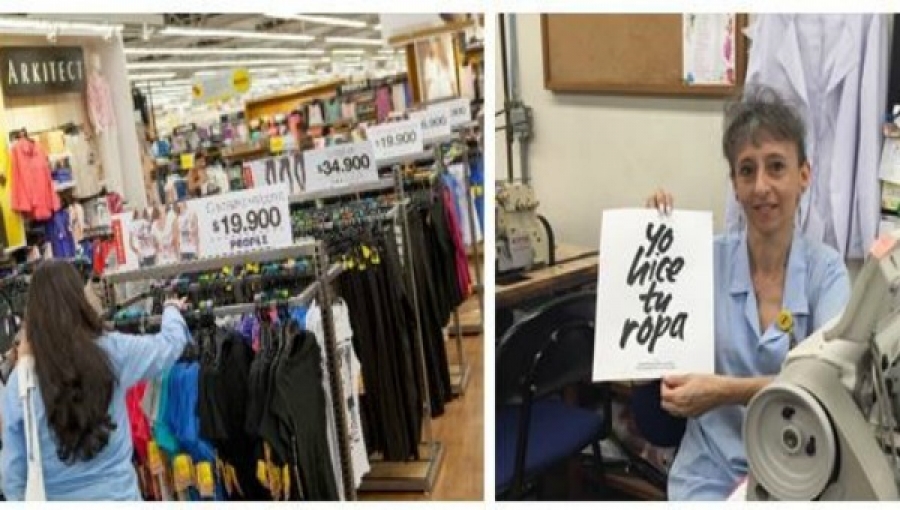Exito’s ‘Didetexco’ Alliance Helps Colombia Compete in Tough Clothing Markets

Medellin-based multinational retail giant Exito is enjoying ever-greater success with its “Didetexco” clothing manufacture/export subsidiary – even in the face of Colombia’s competitive problems with illegal, below-cost, and unethical clothing vendors (mainly exporting from Asia).
In a presentation to the Colombiatex 2018 annual show here January 23, Didetexco general manager Ramiro Arango and fashion coordinator Juliana Rincon pointed to tremendous growth in the division’s production, sales and exports – with 97% of clothing for Exito’s domestic and foreign markets made right here in Colombia.
“To ‘democratize’ fashion is our goal, with everyday-low-prices and sustainability,” Arango said.
The Didetexco clothing division – launched here in 1949 by Exito founder Gustavo Toro Quintero – initially tapped relatively low-cost supplies (scraps and remains from Medellin’s major textile manufacturers) and also provided dignified labor for seamstresses coming from vulnerable economic sectors.
Today’s business model for Didetexco involves tapping “sinerproveedores” – that is, scores of independent workshops in many Colombian towns and cities (including municipalities in Antioquia). These workshops employ some 9,000 directly or indirectly, mostly female heads-of-households.
While these workers aren’t direct employees of Exito, Didetexco nevertheless ensures that these workers receive all legal Colombian salary and benefits packages – in contrast to certain Asian countries that unethically employ slave-like child labor in clothing manufacture, dump toxic chemical byproducts, or sell to third parties that might be laundering illegal drug money by importing below-cost clothing.
In 2017, Didetexco’s “sinerproveedores” produced 33 million items of clothing — up 153% since 2015 — with 2.79 million of those units sold for export, up 390% since 2015, Arango boasted here.
For Exito, having Didetexco enables expansion of its domestic clothing retail sales to its recently acquired retail chains in Argentina and Uruguay — via clothing exports from Colombia — as well as to Brazil, which until recently (December 2017) had tariffs that made it cheaper to export designs rather than clothes.
However, thanks to a new free-trade agreement (eliminating tariffs on clothes), it’s possible that Exito in future could export at least some clothes from Colombia to Brazil.
The Didetexco subsidiary also is now exporting clothes from Colombia to France as well as to Africa, Arango showed.
Thanks to special agreements between Didetexco and several well-known clothing designers (including Silvia Tcherassi), Exito clothing brand-names now include Arkitect, Bronzini, People, Bluss, Custer, Myst lingerie, WKD, Coqui, Carrel, Eventi and Ama’s.
Besides having strong brand names, other competitive advantages enjoyed by Didetexco/Exito include: mid- and long-term deals with the “sinerproveedores;” strong capacity and expertise in exporting; creative designers; strong knowledge of fashion trends; seasonal product lines; “complete package” products; strong marketing and communications; ethical labor and environmental practices; aggressive brand promotion; strong controls on product supply in response to demand; and growing consumer awareness, Arango said.
In addition, “we can react fast and produce fast” in response to changing fashion trends, he said. “From runway to retail, we do fast turnaround. You can’t do that with Bangladesh or China,” even though those countries may offer relatively cheap costs for clothing — but can’t offer fast shipping.
The Didetexco business model also employs a firm “gross margin return on investment” (GMROI) policy that ensures relatively fast inventory rotation, as products will go straight from factories to stores, not to warehouses, he said.
“We also fight [alongside Colombia’s fellow law-abiding clothing makers] to ensure just import duties, so that we can formalize more jobs,” he added.
















